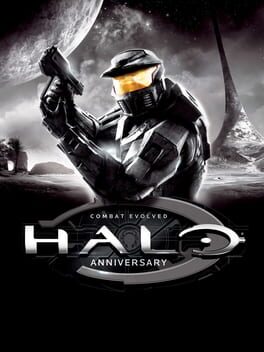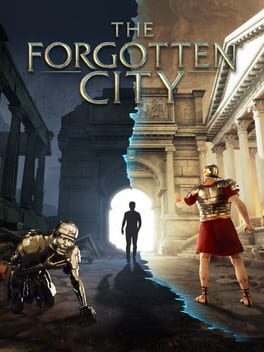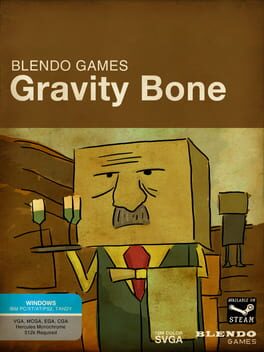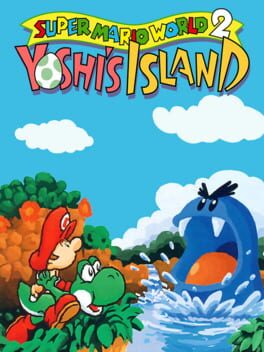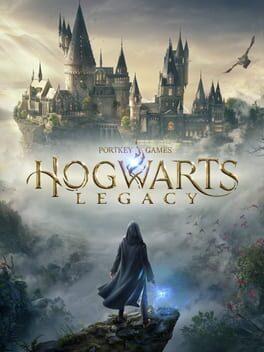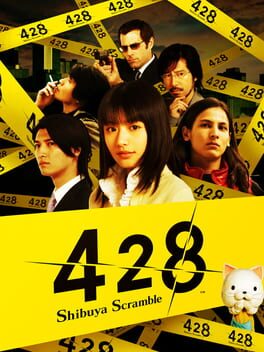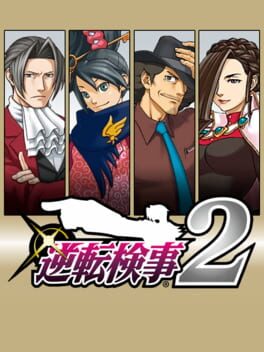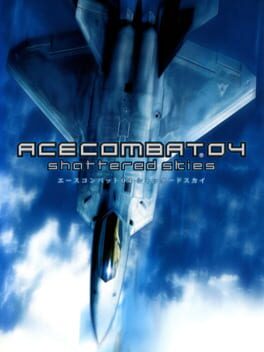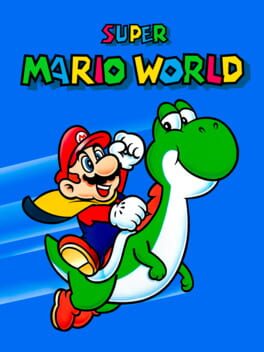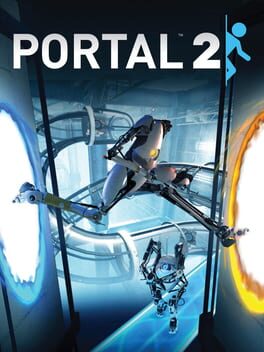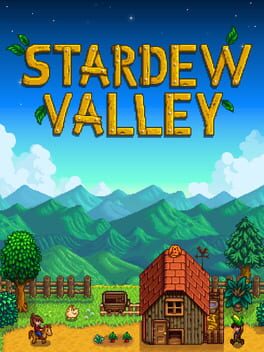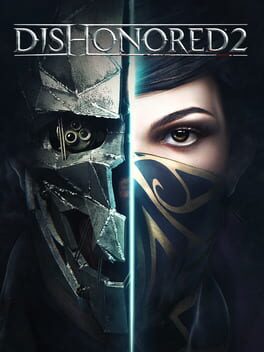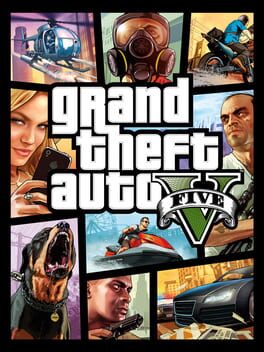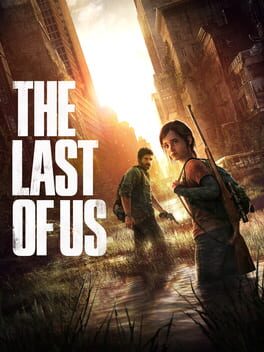SomeWilliam
20 reviews liked by SomeWilliam
This review contains spoilers
i'm of two minds about Sekiro. at times it feels like a great game hiding inside a mediocre one, and sometimes it feels like a mediocre game hiding inside a great one. there are moments where it is a deeply electrifying experience, and there are times where it feels utterly indistinct from the stock AAA formula.
let's start with the good: the one-on-one swordplay in this game is a delight. on a very fundamental level, it's not too dissimilar from the Batman Arkham combat that took 2010s AAA game design by storm: you have dodges and parries that you use in response to specific diagetic and non-diagetic (glowing swords, markers over people's heads) tells, and maintaining a consistent rhythm of combat builds up a meter that you can use to defeat enemies in one hit. sekiro is much more difficult than it's contemporaries in this style in a way that may obscure this similarity, but it is very much there, and it works brilliantly. sekiro has some of the best one-on-one swordfights in the medium, battles of constant aggression where backing off for even a moment to heal gives your opponent time to recover their posture, where a single mistake on your part changes the game, and where perfection is tantalizingly within grasp once you adjust to the game's rhythms. designers Masaru Yamamura and Yuki Fukuda and their design team - along with the game's fantastic audio and animations - are to be applauded for making a game that is experientally not a thousand times removed from a Batman Arkham/Punch-Out!! hybrid feel utterly fresh and unique. the game's combat admittedly loses something when you aren't up against human opponents: the all-too-frequent times you are up against animals strip away the core loop of perfect parries and well-timed dodges into a much less elegant game of hammering the dodge button to get away from unparseable flails of limbs, but even then it rarely devolves so much that the core enjoyment of the combat is no longer present. it's only once you slink away from a duel, back into the shadows, that the flaws begin to show in the game's technique.
the stealth...exists. i hesitate to call it bad but it's certainly not remarkable: if you've played any AAA open world game made in the past few years you know what you're getting here: hiding in tall grass or on branches and rooftops from patrolling enemies that you can kill in one hit by sneaking up behind them, and some distraction items and moves that you'll rarely if ever use because it's much more effective to just stab them in the back. stealth rarely feels like it is the cornerstone of an engaging encounter - only the sniper miniboss in Ashina Depths really felt like something that I had to make careful and considered use of stealth in order to make it through, and that may just be because I got there far too early - and usually either falls into thinning out a couple of enemies before a fight, or slowly picking them off one-by-one Arkham style. the one interesting thing Sekiro brings to the table is that you can take off one of a bosses (usually two) health bars by getting the drop on them, but this has a knock-on effect for the design of those bosses where if you don't get a drop on them, you just have to fight them twice, with only major bosses having different moves and patterns for different phases. technically speaking this rewards the stealth but I'm very tired of the go-to reward for this kind of AAA game being the ability to skip repetitious content. ultimately, like a modern Assassin's Creed or Horizon: Zero Dawn the stealth here would be unable to carry a full game, and just barely meets the boundaries of acceptability for what increasingly seems like an element these games simply must have.
this feeling of weary obligation manifests narratively as well. thematically, I dig what it is doing. this story about how clinging to life after one's time has passed produces a sickness of the soul that mutilates the self and destroys the world around you to sustain yourself is often resonant and occasionally powerful, but it's the moment-to-moment writing that really lets it down: characters are routinely flat and one-dimensional (the character of Owl is notably ill-served, being absent for almost the entire game before making a bizarre cartoonish turn to evil), the game is too eager to show you it's mysteries to really make the environmental storytelling sing (the monastery is theoretically my favorite narrative arc here but because The Deal is unveiled almost immediately there's no real escalation of information: you learn almost immediately that these guys made themselves into undying monsters through these freaky worms and there's precious little left to discover in the course of your adventure), and the game's refreshingly restrained storytelling for a big AAA game ultimately dooms this narrative to fade from the mind as quickly as it passes through the body. perhaps this could have been solved with more dialogue, but given that attempting to explore the narrative further "rewards" the player with a "true" ending that is total MCU sequel hook rubbish compared to the poignant normal endings, I'm not sure this is a quick fix. I do think the storytelling here is ultimately too slight, as the lack of space given to characters like Genichiro or places like Ashina to be understood as characters who have a coherent belief system or culture or context they are clinging to robs the game of a lot of the resonance it could potentially bring out by boiling things down to the point that the metaphors struggle to be gleamed through the Proper Nouns, but I think the wider problem is this game is far, far too long.
again, this is something sekiro very much has in common with it's contemporaries in the AAA space. Sekiro took me just over 30 hours to finish - with at least 4 hours dedicated to Final Boss Attempts alone because Good God - and I think you could have halved that and it would have twice the impact. i'm not really interested in speculating on what a hypothetical half-long Sekiro would look like, or Sek if you will, but certainly the game as it is empties it's bag of shinobi tricks (generously) about two thirds before the end, and relies on quite a few palette swapped enemies and bosses (it is a crime that the Chained Ogre is in here at all, let alone twice) as well as some truly sloppy designs (Demon of Hatred, Headless Ape) that don't gel at all with the experience the game is aiming for. somewhere in the imagination there exists a 12-15 hour Sekiro that excises the bosses that Just Don't Work, and focuses on the supremely polished, rock-hard core of the game that is consistently electrifying, but instead we have this bloated, confused, game that gets messier the more you step away from that ironclad heart.
inevitably, I am brought back to the question that dominates all my thoughts about sekiro: why? why is Sekiro like this? why did it feel the need to be 30 hours long? most linear action games without Open Worlds tend to clock in at either half of or a third of that length, so why does this have the length of an RPG? speaking of RPGs, why are the countless vestigial elements of currency, upgrades, that do little to enhance the core design here as well? why is this game riddled with unnecessary elements that either do not help it or actively undermine it? i'd almost say that it feels trapped in the poisonous swamp of some other, predecessor franchise from which many of these vestigial design elements originate from, the fanbase of which would expect a game with certain features and considerations and of a certain length, a fandom that would give tremendous benefit to this game by only viewing it through the narrow lens of the other games in this series rather than the wider industry design trends that it is clearly in conversation with, and that Sekiro: Shadows Die Twice ultimately wounded itself in order to accommodate a formula set down by these prior games that the developers are tragically wedded to despite said formula not truly fitting with the core design of this fundamentally distinct experience...but I couldn't possibly think of what that might be. i'm pretty sure from software didn't develop The Surge, after all.
perhaps we should count our blessings: at least it didn't try to infect itself with an Open World.
let's start with the good: the one-on-one swordplay in this game is a delight. on a very fundamental level, it's not too dissimilar from the Batman Arkham combat that took 2010s AAA game design by storm: you have dodges and parries that you use in response to specific diagetic and non-diagetic (glowing swords, markers over people's heads) tells, and maintaining a consistent rhythm of combat builds up a meter that you can use to defeat enemies in one hit. sekiro is much more difficult than it's contemporaries in this style in a way that may obscure this similarity, but it is very much there, and it works brilliantly. sekiro has some of the best one-on-one swordfights in the medium, battles of constant aggression where backing off for even a moment to heal gives your opponent time to recover their posture, where a single mistake on your part changes the game, and where perfection is tantalizingly within grasp once you adjust to the game's rhythms. designers Masaru Yamamura and Yuki Fukuda and their design team - along with the game's fantastic audio and animations - are to be applauded for making a game that is experientally not a thousand times removed from a Batman Arkham/Punch-Out!! hybrid feel utterly fresh and unique. the game's combat admittedly loses something when you aren't up against human opponents: the all-too-frequent times you are up against animals strip away the core loop of perfect parries and well-timed dodges into a much less elegant game of hammering the dodge button to get away from unparseable flails of limbs, but even then it rarely devolves so much that the core enjoyment of the combat is no longer present. it's only once you slink away from a duel, back into the shadows, that the flaws begin to show in the game's technique.
the stealth...exists. i hesitate to call it bad but it's certainly not remarkable: if you've played any AAA open world game made in the past few years you know what you're getting here: hiding in tall grass or on branches and rooftops from patrolling enemies that you can kill in one hit by sneaking up behind them, and some distraction items and moves that you'll rarely if ever use because it's much more effective to just stab them in the back. stealth rarely feels like it is the cornerstone of an engaging encounter - only the sniper miniboss in Ashina Depths really felt like something that I had to make careful and considered use of stealth in order to make it through, and that may just be because I got there far too early - and usually either falls into thinning out a couple of enemies before a fight, or slowly picking them off one-by-one Arkham style. the one interesting thing Sekiro brings to the table is that you can take off one of a bosses (usually two) health bars by getting the drop on them, but this has a knock-on effect for the design of those bosses where if you don't get a drop on them, you just have to fight them twice, with only major bosses having different moves and patterns for different phases. technically speaking this rewards the stealth but I'm very tired of the go-to reward for this kind of AAA game being the ability to skip repetitious content. ultimately, like a modern Assassin's Creed or Horizon: Zero Dawn the stealth here would be unable to carry a full game, and just barely meets the boundaries of acceptability for what increasingly seems like an element these games simply must have.
this feeling of weary obligation manifests narratively as well. thematically, I dig what it is doing. this story about how clinging to life after one's time has passed produces a sickness of the soul that mutilates the self and destroys the world around you to sustain yourself is often resonant and occasionally powerful, but it's the moment-to-moment writing that really lets it down: characters are routinely flat and one-dimensional (the character of Owl is notably ill-served, being absent for almost the entire game before making a bizarre cartoonish turn to evil), the game is too eager to show you it's mysteries to really make the environmental storytelling sing (the monastery is theoretically my favorite narrative arc here but because The Deal is unveiled almost immediately there's no real escalation of information: you learn almost immediately that these guys made themselves into undying monsters through these freaky worms and there's precious little left to discover in the course of your adventure), and the game's refreshingly restrained storytelling for a big AAA game ultimately dooms this narrative to fade from the mind as quickly as it passes through the body. perhaps this could have been solved with more dialogue, but given that attempting to explore the narrative further "rewards" the player with a "true" ending that is total MCU sequel hook rubbish compared to the poignant normal endings, I'm not sure this is a quick fix. I do think the storytelling here is ultimately too slight, as the lack of space given to characters like Genichiro or places like Ashina to be understood as characters who have a coherent belief system or culture or context they are clinging to robs the game of a lot of the resonance it could potentially bring out by boiling things down to the point that the metaphors struggle to be gleamed through the Proper Nouns, but I think the wider problem is this game is far, far too long.
again, this is something sekiro very much has in common with it's contemporaries in the AAA space. Sekiro took me just over 30 hours to finish - with at least 4 hours dedicated to Final Boss Attempts alone because Good God - and I think you could have halved that and it would have twice the impact. i'm not really interested in speculating on what a hypothetical half-long Sekiro would look like, or Sek if you will, but certainly the game as it is empties it's bag of shinobi tricks (generously) about two thirds before the end, and relies on quite a few palette swapped enemies and bosses (it is a crime that the Chained Ogre is in here at all, let alone twice) as well as some truly sloppy designs (Demon of Hatred, Headless Ape) that don't gel at all with the experience the game is aiming for. somewhere in the imagination there exists a 12-15 hour Sekiro that excises the bosses that Just Don't Work, and focuses on the supremely polished, rock-hard core of the game that is consistently electrifying, but instead we have this bloated, confused, game that gets messier the more you step away from that ironclad heart.
inevitably, I am brought back to the question that dominates all my thoughts about sekiro: why? why is Sekiro like this? why did it feel the need to be 30 hours long? most linear action games without Open Worlds tend to clock in at either half of or a third of that length, so why does this have the length of an RPG? speaking of RPGs, why are the countless vestigial elements of currency, upgrades, that do little to enhance the core design here as well? why is this game riddled with unnecessary elements that either do not help it or actively undermine it? i'd almost say that it feels trapped in the poisonous swamp of some other, predecessor franchise from which many of these vestigial design elements originate from, the fanbase of which would expect a game with certain features and considerations and of a certain length, a fandom that would give tremendous benefit to this game by only viewing it through the narrow lens of the other games in this series rather than the wider industry design trends that it is clearly in conversation with, and that Sekiro: Shadows Die Twice ultimately wounded itself in order to accommodate a formula set down by these prior games that the developers are tragically wedded to despite said formula not truly fitting with the core design of this fundamentally distinct experience...but I couldn't possibly think of what that might be. i'm pretty sure from software didn't develop The Surge, after all.
perhaps we should count our blessings: at least it didn't try to infect itself with an Open World.
not only had I never played Halo before I'd never even taken the slightest interest in the series and bothered to watch any gameplay, so I was completely unaware as to what its appeal was. playing it helped bridge some gaps in my shooter knowledge. i see that it basically sits at the midpoint in the lineage between arena shooters like Doom and Quake and the dour propagandist military shooters like Modern Warfare and Battlefield.
it helps explain, to me at least, how Call of Duty 4 didn't just spring up out of nowhere. that the pivot from WWII shooters starts here, I think: Halo, with its jingoistic portrayal of American Marines. Halo was clearly conceived in the 90s and intended to have the sort of goofy enemies audiences were used to from games like Doom. but the result is this weird feeling of you shooting a mix of innocent-seeming yet very annoying grunt cunts (some times in their shrines while they sleep) who speak a language that's essentially gibberish to you (no subtitles or anything). and then later, in the second half, you're blasting an overwhelming force of zombie bugs.
Halo ends up feeling a bit like a non-satirical Starship Troopers, almost serving as the straight-forward example of how fascists can dehumanise "the enemy" by representing them as stupid annoying bugs. i think something like that is going on here, even if by accident. but it is there.
i mean, the original PC release for Halo: Combat Evolved was less than three weeks after the 9/11 terror attacks. kind of awkward then for so much of the game to vaguely reflect the eventual US invasions of Afghanistan and Iraq. obviously it's a coincidence but it's an awkward one.
Halo reminded me a bit of Avatar too, which is odd considering that movie came out eight years later. like starship troopers, avatar is another example of a sci-fi movie with a lot of transparent political themes. chiefly, indigenous genocide. i only mention it because sometimes i think game developers assume if they can cherry pick from an assortment of human history for their stories, and then wrap a sci-fi, space bow around it all, then their game can better appear apolitical. call of duty infinite warfare seemed to think so. mass effect, too, to an extent. but when your main army human characters genuinely look like US Marines, your (understandably) biased POV starts to show.
the leeway i'll grant Halo is that it's more clearly influenced by a different James Cameron movie: Aliens. it so wants to be Aliens. there's nothing wrong with being Aliens or having inspiration beholden to b-movie schlock. but Halo is rarely that playful. and its story/lore so thin, there's not much else left for you to cling to. it has such a self-serious tone to it all too that it makes how much of a blast it actually is to play feel like a guilt trip.
a lot of Halo also reminds me of Half-Life 2. when I was playing half life 2, I actually thought the beach scene reminded me of the beach scene in Halo, which was odd, because at that point I'd never played a Halo. i don't know where the association came from. the games do have a lot in common. linear corridor sequences. bug creatures that jump on yo face. shitty vehicle sections. a silent protagonist. the difference being here you're closer to the baddie than a rebel resistance fighter.
i do actually kind of like Master Chief though. he isn't just Gordon Freeman with a badass full face BMX helmet, although alone that is more personality than freeman is ever given. i was surprised Chief actually can talk too, he just seems like he'd rather shut up most of the time. he's a genuine strong, silent type. a real gary cooper. in fact, until he spoke i thought it is an interesting decision to have his female AI friend, Cortana, do all the communicating for him. it's like everyone respects Master Chief on the battlefield, the big bad iconic war hero, but with Cortana doing all the speaking for him, he's almost like the shy son doing whatever his mum says behind closed doors. it's a very different relationship to the one Alyx has with freeman/the player in half life 2. i was also surprised how sassy Cortana is. or not sassy but she's one of the most human AIs i've encountered in a game. i wish the game had a little more of her. i wish she could have been the player character, really. it's weird when the female character is given all the personality but none of the chance to actually be the hero (which Cortana is here, as Master Chief was fooled into ending all life in the universe by a robot).
i ultimately wound up vibing with Halo though, way more than I thought I would, or than I even probably should. the level design is very basic but i am a simple man, i love corridors. i love the weird alien architecture. i played this with the original graphics and i loved the minimalist limitations and the sparseness of it all. i loved how vibrant the game was at times, and with how purple and turquoise everything was. i've never played such a purple game. a lot of boomer shooters today take their influence from Doom and Quake and splatter red and various muted, muddy colours everywhere. would love to play more games that look designed off of a 90s Anaheim Ducks jersey. the gunplay was fine. shooters haven't gotten much better 20 years later, imo.
this an instance where maybe the game is the devil but it presents itself in an alluring enough fashion for me not to care. there was a moment when i was shooting one of the sleeping grunts in a shrine, and i thought "this is wrong" but at the same time i blasted away and my thoughts turned to "i can't wait to play Halo 2". it's like, i know candy is bad for me, i wish i had more self control but if something is sweet it's sweet, i don't know what to say. blasting aliens in Halo was sweet. i'd do it again. . ¯\(ツ)/¯
it helps explain, to me at least, how Call of Duty 4 didn't just spring up out of nowhere. that the pivot from WWII shooters starts here, I think: Halo, with its jingoistic portrayal of American Marines. Halo was clearly conceived in the 90s and intended to have the sort of goofy enemies audiences were used to from games like Doom. but the result is this weird feeling of you shooting a mix of innocent-seeming yet very annoying grunt cunts (some times in their shrines while they sleep) who speak a language that's essentially gibberish to you (no subtitles or anything). and then later, in the second half, you're blasting an overwhelming force of zombie bugs.
Halo ends up feeling a bit like a non-satirical Starship Troopers, almost serving as the straight-forward example of how fascists can dehumanise "the enemy" by representing them as stupid annoying bugs. i think something like that is going on here, even if by accident. but it is there.
i mean, the original PC release for Halo: Combat Evolved was less than three weeks after the 9/11 terror attacks. kind of awkward then for so much of the game to vaguely reflect the eventual US invasions of Afghanistan and Iraq. obviously it's a coincidence but it's an awkward one.
Halo reminded me a bit of Avatar too, which is odd considering that movie came out eight years later. like starship troopers, avatar is another example of a sci-fi movie with a lot of transparent political themes. chiefly, indigenous genocide. i only mention it because sometimes i think game developers assume if they can cherry pick from an assortment of human history for their stories, and then wrap a sci-fi, space bow around it all, then their game can better appear apolitical. call of duty infinite warfare seemed to think so. mass effect, too, to an extent. but when your main army human characters genuinely look like US Marines, your (understandably) biased POV starts to show.
the leeway i'll grant Halo is that it's more clearly influenced by a different James Cameron movie: Aliens. it so wants to be Aliens. there's nothing wrong with being Aliens or having inspiration beholden to b-movie schlock. but Halo is rarely that playful. and its story/lore so thin, there's not much else left for you to cling to. it has such a self-serious tone to it all too that it makes how much of a blast it actually is to play feel like a guilt trip.
a lot of Halo also reminds me of Half-Life 2. when I was playing half life 2, I actually thought the beach scene reminded me of the beach scene in Halo, which was odd, because at that point I'd never played a Halo. i don't know where the association came from. the games do have a lot in common. linear corridor sequences. bug creatures that jump on yo face. shitty vehicle sections. a silent protagonist. the difference being here you're closer to the baddie than a rebel resistance fighter.
i do actually kind of like Master Chief though. he isn't just Gordon Freeman with a badass full face BMX helmet, although alone that is more personality than freeman is ever given. i was surprised Chief actually can talk too, he just seems like he'd rather shut up most of the time. he's a genuine strong, silent type. a real gary cooper. in fact, until he spoke i thought it is an interesting decision to have his female AI friend, Cortana, do all the communicating for him. it's like everyone respects Master Chief on the battlefield, the big bad iconic war hero, but with Cortana doing all the speaking for him, he's almost like the shy son doing whatever his mum says behind closed doors. it's a very different relationship to the one Alyx has with freeman/the player in half life 2. i was also surprised how sassy Cortana is. or not sassy but she's one of the most human AIs i've encountered in a game. i wish the game had a little more of her. i wish she could have been the player character, really. it's weird when the female character is given all the personality but none of the chance to actually be the hero (which Cortana is here, as Master Chief was fooled into ending all life in the universe by a robot).
i ultimately wound up vibing with Halo though, way more than I thought I would, or than I even probably should. the level design is very basic but i am a simple man, i love corridors. i love the weird alien architecture. i played this with the original graphics and i loved the minimalist limitations and the sparseness of it all. i loved how vibrant the game was at times, and with how purple and turquoise everything was. i've never played such a purple game. a lot of boomer shooters today take their influence from Doom and Quake and splatter red and various muted, muddy colours everywhere. would love to play more games that look designed off of a 90s Anaheim Ducks jersey. the gunplay was fine. shooters haven't gotten much better 20 years later, imo.
this an instance where maybe the game is the devil but it presents itself in an alluring enough fashion for me not to care. there was a moment when i was shooting one of the sleeping grunts in a shrine, and i thought "this is wrong" but at the same time i blasted away and my thoughts turned to "i can't wait to play Halo 2". it's like, i know candy is bad for me, i wish i had more self control but if something is sweet it's sweet, i don't know what to say. blasting aliens in Halo was sweet. i'd do it again. . ¯\(ツ)/¯
The Forgotten City
2021
The Forgotten City stars off with the worst part of the game, with some poor writing which includes a really dumb Karen joke. It gives a sour taste to the start of the game but thankfully the choice of name actually ends up becoming an interesting twist, but it’s a bad way to date your game at the very start.
This Karen has saved you from a river, and asks you to find someone called Al. Coming across some ruins, you fall down a large drop into a hidden ancient city, filled with gold statues of people, except these statues look like people frozen in time. Entering a portal, you end up hurled back in time around 2000 years into a mysterious ancient city.
The city has what the inhabitants call “The Golden Rule”. If any one person commits a sin, everyone will be wiped out (by some kind of god, the people there disagree on which one). Some inhabitants think this is just a way for the magistrate to control the people. The Magistrate knows (based on your appearance) that someone will break The Golden Rule within the next day, as he’s discovered a ritual that allows him to reset time.
In order to return to your own timeline, you are told that you have to stop this sin from being committed. While there is some combat in this game, the majority of the game is talking to people, discovering their history, motives and plans, as well as figuring out the puzzle of how the city works. If you fail, you have to rush back to the portal and start the day again, regaining your knowledge and any items you have collected.
Unlike The Outer Wilds, another time loop game, The Forgotten City doesn’t run on a clock, events happen by you triggering them (often by walking to the location where they happen), which gives the game a very relaxed feel for the most part, as you don’t need to rush around. One other thing which is extremely handy is that as you complete tasks, you can tell the first person you meet each day to do a load of stuff for you, so you aren’t constantly repeating the same things and can focus entirely on unravelling more of the mystery.
The writing (other than the one section at the start) is great, the 23 residents are mostly interesting (there are a couple that don’t do much) and it’s very satisfying learning how to manipulate events. I recently played Twelve Minutes, which is another dialogue-heavy time loop game, and in that it was a constant frustration that I couldn’t try any ideas or ask the questions I wanted due to the game’s limitations, but in The Forgotten City it seemed like most things I wanted to ask were there, and one crazy idea I had actually led to one of the game’s endings (there are four in total, although you really should aim to discover them all).
The Forgotten City has a very interesting mystery, with lots of great revelations and discoveries throughout, and a conclusion I was very satisfied with.
This Karen has saved you from a river, and asks you to find someone called Al. Coming across some ruins, you fall down a large drop into a hidden ancient city, filled with gold statues of people, except these statues look like people frozen in time. Entering a portal, you end up hurled back in time around 2000 years into a mysterious ancient city.
The city has what the inhabitants call “The Golden Rule”. If any one person commits a sin, everyone will be wiped out (by some kind of god, the people there disagree on which one). Some inhabitants think this is just a way for the magistrate to control the people. The Magistrate knows (based on your appearance) that someone will break The Golden Rule within the next day, as he’s discovered a ritual that allows him to reset time.
In order to return to your own timeline, you are told that you have to stop this sin from being committed. While there is some combat in this game, the majority of the game is talking to people, discovering their history, motives and plans, as well as figuring out the puzzle of how the city works. If you fail, you have to rush back to the portal and start the day again, regaining your knowledge and any items you have collected.
Unlike The Outer Wilds, another time loop game, The Forgotten City doesn’t run on a clock, events happen by you triggering them (often by walking to the location where they happen), which gives the game a very relaxed feel for the most part, as you don’t need to rush around. One other thing which is extremely handy is that as you complete tasks, you can tell the first person you meet each day to do a load of stuff for you, so you aren’t constantly repeating the same things and can focus entirely on unravelling more of the mystery.
The writing (other than the one section at the start) is great, the 23 residents are mostly interesting (there are a couple that don’t do much) and it’s very satisfying learning how to manipulate events. I recently played Twelve Minutes, which is another dialogue-heavy time loop game, and in that it was a constant frustration that I couldn’t try any ideas or ask the questions I wanted due to the game’s limitations, but in The Forgotten City it seemed like most things I wanted to ask were there, and one crazy idea I had actually led to one of the game’s endings (there are four in total, although you really should aim to discover them all).
The Forgotten City has a very interesting mystery, with lots of great revelations and discoveries throughout, and a conclusion I was very satisfied with.
The Forgotten City
2021
Gravity Bone
2008
Cocoon
2023
Hogwarts Legacy
2023
Maybe I thought about this one too much but the idea that the “dark arts” which just insta-kill enemies are for some reason 10000x worse than a spell which turns your enemies into explosive barrels which you can throw at the other bad guys so they both cease to exist, really ruined all my immersion. The world is kinda beautiful and the child in me is just happy to see 4K hogwarts but to be perfectly clear, this is a game that requires brain deletion to truly love everything that is going on
Dark Souls III
2016
Dark Souls III
2016
5 lists liked by SomeWilliam

